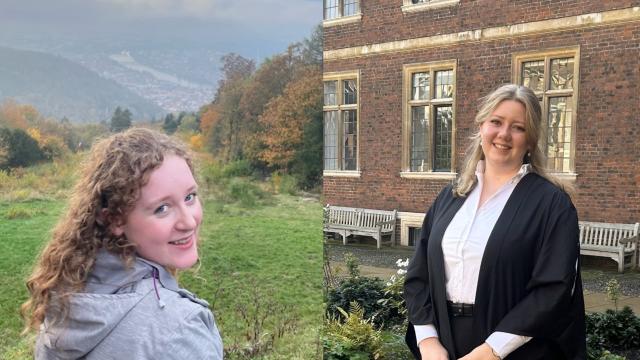
Dr Gilly Carr (2006), Fellow and Director of Studies in Archaeology at St Catharine’s College, has been awarded the 2020 European Archaeological Heritage Prize in recognition of her heritage activism on behalf of victims of Nazism from the Channel Islands, which were occupied from 1940–1945.
On behalf of the Heritage Prize Committee, Katalin Wollák said, "The management of archaeological heritage is a challenge for all societies and often especially so for smaller communities... It is an even more difficult challenge when the archaeological remains relate to recent historical events, opening up an array of different memories and emotions. Dr Gilly Carr undertook this task when she researched and evaluated the period of Channel Islands history under German occupation."
The prize has been awarded annually since 1999 to individuals or institutions who have made outstanding contributions to the generation of archaeological heritage knowledge and its dissemination, and to the protection, presentation and enhancement of the European archaeological heritage. This year’s announcement was part of the Opening Ceremony of the 2020 Virtual Annual Meeting of the European Association of Archaeologists.
 Pictured: The prize medal awarded to Dr Carr by the European Association of Archaeologists.
Pictured: The prize medal awarded to Dr Carr by the European Association of Archaeologists.
Dr Carr’s research has transformed awareness of Channel Islander victims of Nazi persecution both in the Channel Islands and internationally. By raising the profile of these people through ‘traditional’ and online heritage, and their suffering in Nazi prisons and concentration camps, has not only returned a lost history to the Channel Islands, but also enriched understandings internationally.
She commented, “My work has raised awareness of all categories of victims and survivors of Nazism – deportees, forced labourers and Jews – but it is the political prisoners who have a special place in my heart and I sincerely hope my work has begun to rehabilitate their memory. They faced imprisonment or deportation to Nazi prisons, labour camps and concentration camps for acts of protest, defiance and resistance, without any honours or meaningful recognition after the war ended. I therefore wish to dedicate this award to the political prisoners of the Channel Islands, which seems particularly fitting since this year marks the 75th anniversary of the liberation of the camps.”


